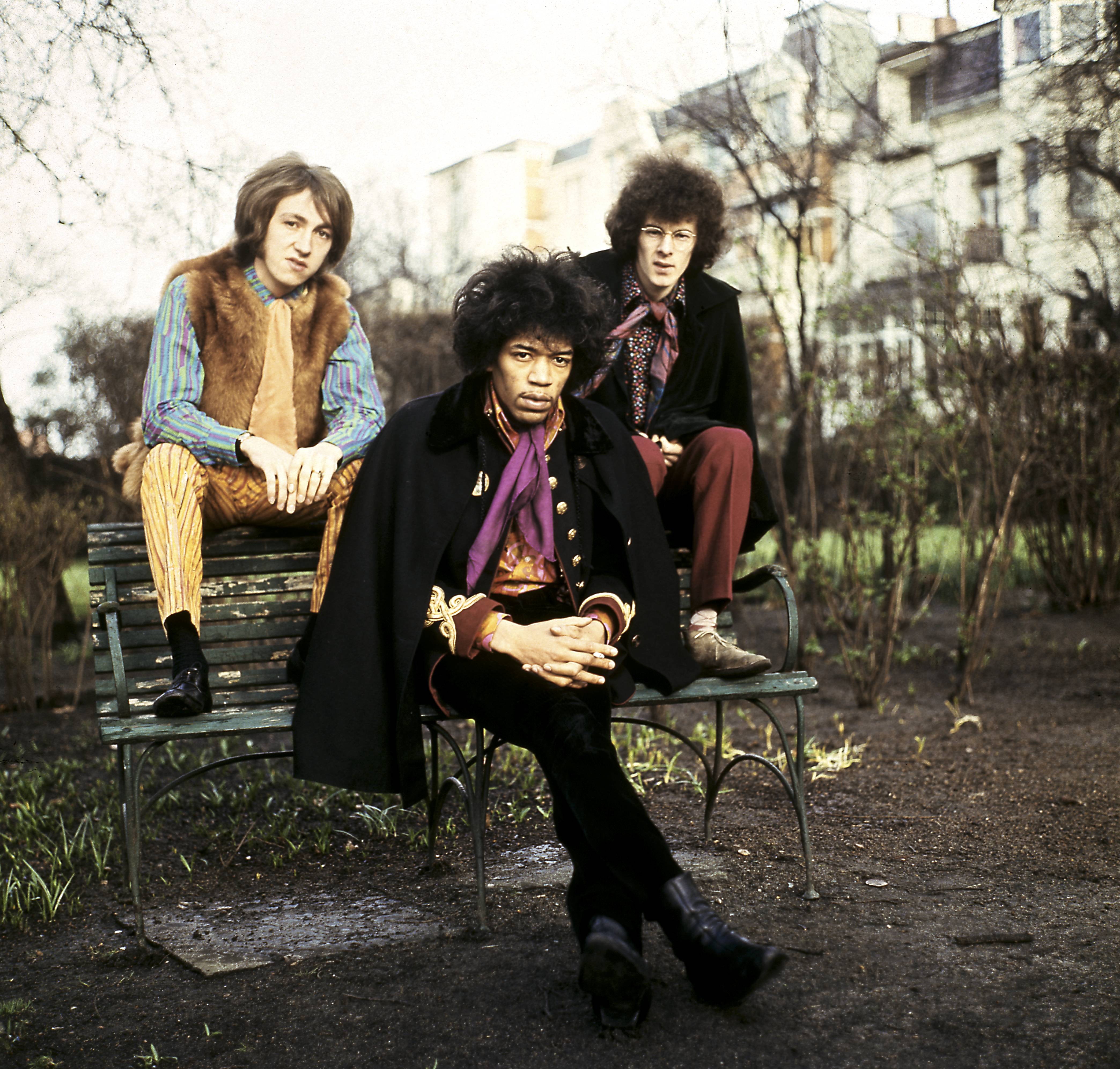
Walk past the pristine marble busts that line the Classical art halls of the Metropolitan Museum of Art this month and you’ll end up in front of a different set of icons: electronic guitars.
This was the image that sold Jimmy Page, the legendary Led Zeppelin guitarist, on the Met’s latest exhibition, “Play it Loud: Instruments of Rock and Roll,” which opens to the public on April 8. Jayson Kerr Dobney, the show’s curator, first approached Page several years ago with the suggestion that he contribute to the exhibition. At the time, the musician was skeptical.
“Then they laid out the plan of the exhibit and explained to me that you’ll walk through Greek and Roman statues in the galleries and then you’ll see Chuck Berry’s guitar standing there,” explained Page at a packed press preview ahead of the show.
“And I said, ‘Okay, what do you want?’”
Jimmy Page of Led Zeppelin, Don Felder of Eagles, Steve Miller of Steve Miller Band, and Tina Weymouth of Talking Heads attend the Press Preview for “Play it Loud: Instruments of Rock & Roll” at The Metropolitan Museum of Art on April 1, 2019 in New York City. Photo: Taylor Hill/Getty Images.
“Play It Loud,” which is organized in collaboration with the Rock and Roll Hall of Fame in Cleveland (where it will travel this fall), brings together more than 130 guitars, drum kits, pianos, synthesizers, and other instruments dating from 1939 to 2017. These were the tools that made “one of the most significant movements of the 20th century,” said the Met’s director, Max Hollein, at the preview, which also included presentations by Steve Miller, Tina Weymouth of the Talking Heads, and Don Felder of the Eagles. “They encapsulate the creativity, experience, aesthetics, condition of the time,” Hollein said.
In true Met fashion, the list of objects on view is world class, including instruments wielded by so many of rock’s canonized greats.
Installation view of “Play It Loud: Instruments of Rock & Roll,” 2019, at rhe Metropolitan Museum of Art. Photo: Selcuk Acar/NurPhoto via Getty Images.
You can see, for instance, the white guitar Jimi Hendrix played at Woodstock, and the remains of the one he destroyed in a sacrificial fire at the Monterey Pop Festival. There’s Jerry Lee Lewis’s Baby Grand piano, the bass used to record “Rapper’s Delight,” and the axe that was slung over Bruce Springsteen’s back on the cover of his famed album Born to Run. There are tons of famous instruments: Eric Clapton’s “Blackie,” Eddie Van Halen’s “Frankenstein,” and Stevie Ray Vaughan’s “Number one,” to name a few. And there are newer additions too: Lady Gaga’s angular electronic piano from 2014, and St. Vincent’s custom neon-tinted guitar from 2015.
Each one—marred with cigarette burns, destroyed through punk ritualism, or covered in thin films of sweat, sticker residue, and Keith Richard’s vomit—tells a story.
Acoustic guitar, C.F. Martin & Co., 1942, used by Elvis Presley during his Sun Studios sessions. Photo: Jules Frazier, courtesy The Metropolitan Museum of Art.
“We really wanted to tackle the subject of musical instruments in the many different ways that Rock and Roll musicians use them,” said Dobney. “As an art museum, it was important to represent the visual uses, so you’ll see many decorated pieces as well as iconic images.”
Knowingly, Hollein notes that the Met can “sometimes be a bit conservative”.
“Pitching an exhibition about Rembrandt or Michelangelo or Greek sculpture—that’s pretty easy,” he says. “But pitching an idea about the instruments of rock and roll is a bit more complicated.”
Don Felder of Eagles at the preview of “Play It Loud: Instruments of Rock & Roll. Photo: Selcuk Acar/NurPhoto via Getty Images.
Indeed, while the exhibition is a hip departure from the Baroque lutes and old pipe organs that usually highlight the museum’s department of musical instruments, it is also a rather basic sampling of dad rock, preferring to emphasize the (mostly male) guitar gods of the 1960s and 70s over, say, the musicians of genres like punk, folk, or metal.
Still, even the most ardent of nitpickers is likely to find something to geek out over.
This much was clear at the end of the press preview, when a leather-clad Don Felder climbed the stage. He recalled moving to New York in 1968 with a “guitar in one hand and a suitcase in the other,” and visiting the Met on his second day in the city—a story that captured both the young romanticism of rock, and the incredible fact that 60 years later, the genre was being sanctified by one of the most important art museums in the world.
Then he picked up a double-neck guitar and launched into a solo rendition of “Hotel California.”
Installation view of “Play It Loud: Instruments of Rock & Roll,” 2019, at rhe Metropolitan Museum of Art. Photo: Don Emmert/AFP/Getty Images.
Visitors at the opening reception for “Play It Loud: Instruments Of Rock & Roll” at The Metropolitan Museum of Art, 2019. Photo: Nicholas Hunt/Getty Images.
Fragment of Jimi Hendrix’s Fender Stratocaster burned at the Monterey Pop Festival, 1967. Courtesy of MoPOP, Seattle, WA.
Lady Gaga’s ARTPOP piano. Photo: Taylor Hill/Getty Images.
“Play It Loud: Instruments of Rock & Roll” will be on view at the Metropolitan Museum of Art from April 8–October 1, 2019.